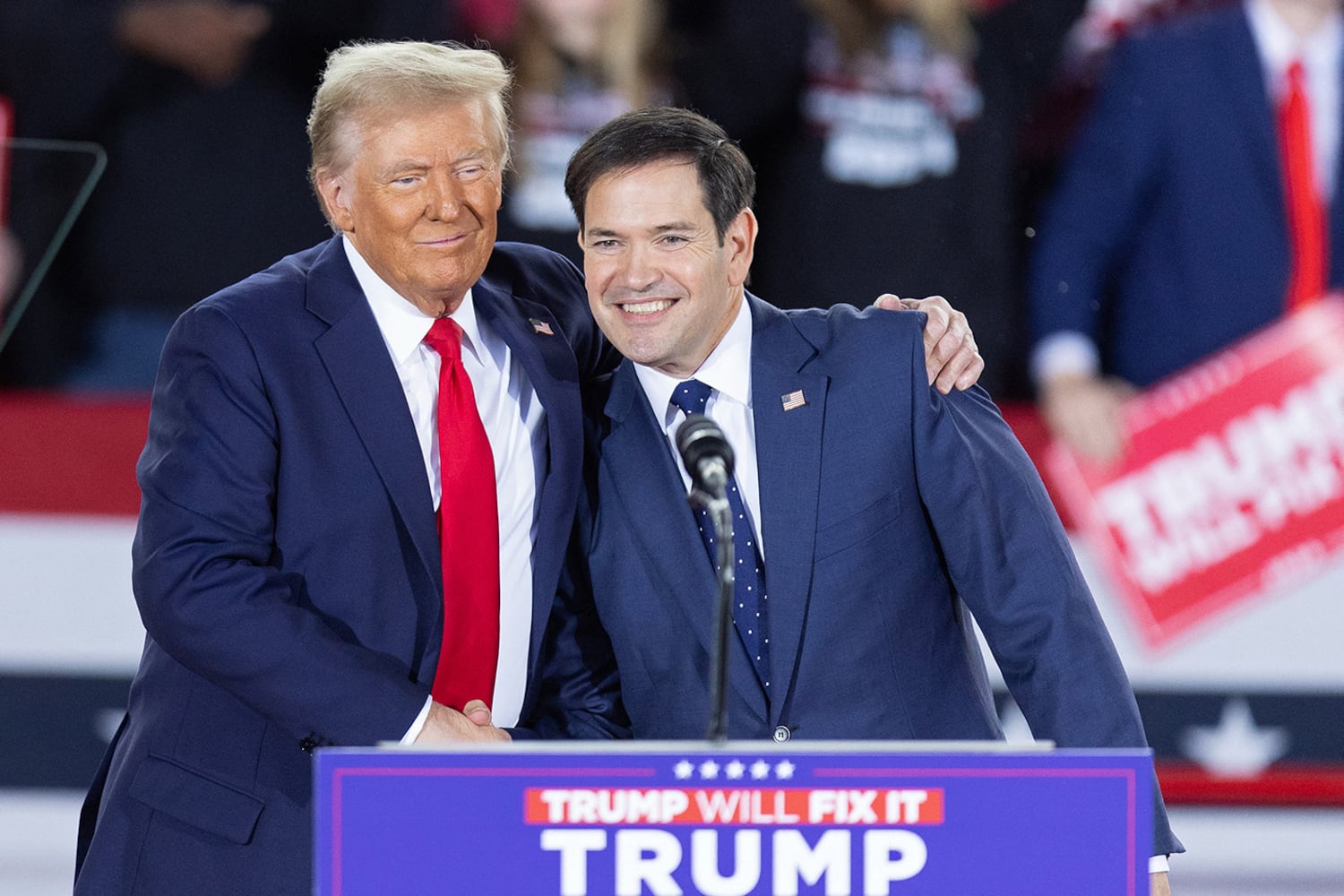WASHINGTON – Marco Rubio, a strident foreign policy “hawk” when it comes to relations with China, has been nominated by President-elect Donald Trump to serve as the next U.S. secretary of state.
The Republican senator from Trump’s adopted home state of Florida is almost certain to be confirmed as America’s top diplomat by his soon-to-be former colleagues, with the Republican Party now controlling the Senate with a 53-47 majority over the Democrats.
Rubio’s nomination Wednesday completes a trifecta of China “hawks” in the three most important foreign policy picks for a president.
He joins Rep. Mike Waltz of Florida, who will be appointed Trump’s national security adviser, and Rep. Elise Stefanik of New York, who has been nominated to be ambassador to the United Nations.
In a statement released on his Truth Social platform, Trump called Rubio “a Highly Respected Leader” and “a very powerful Voice for Freedom” who would represent America well on the world stage.
“He will be a strong Advocate for our Nation, a true friend to our Allies, and a fearless Warrior who will never back down to our adversaries,” Trump said, adding that Rubio as a senator had “authored hundreds of new laws, including some that are truly transformational.”
In his own statement, Rubio called the role of secretary of state “a tremendous responsibility” and said that he was “honored by the trust President Trump has placed in me” in making the nomination.
“As Secretary of State, I will work every day to carry out his foreign policy agenda,” he added. “Under the leadership of President Trump, we will deliver peace through strength and always put the interests of Americans and America above all else.”
From foes to friends
It’s a remarkable turnaround in relations between the two Floridians, who along with Sen. Ted Cruz of Texas were the last three standing candidates for the Republican presidential nomination in 2016.
Trump easily brushed aside Rubio to secure the nomination and then the presidency, referring to the senator derisively and repeatedly as “Little Marco” while accusing him of being in the pocket of lobbyists.
Rubio equally did not hold back, accusing Trump of using “illegal immigrant labor” to build Trump Tower in New York City and of only having found business success because of an inheritance from his father.
But the pair seemed to make peace during Trump’s most recent run for office, with Rubio even being vetted as a possible vice president pick.

Rubio also has some support across the aisle, with Sen. John Fetterman, a Democrat from Pennsylvania, indicating that he plans to vote in favor of his nomination to the post.
Sanctioned secretary
If confirmed, Rubio would be the first sitting U.S. secretary of state to have been sanctioned by Beijing, having been blacklisted in retaliation for U.S. sanctions on Chinese officials for the genocide against the Uyghur ethnic minority and for the crackdown in Hong Kong.
But there is already some skepticism of the influence he will have in the Trump administration, even if it is set to be dominated by China hawks.
Former Rep. Adam Kinzinger, who was one of the few Republicans in the House of Representatives to vote to impeach Trump during his last term in office, said he thought Rubio might be kept on a tight leash.
“Marco has shown his ability to kind of change for whatever Donald Trump demands, so it really comes down to, ‘What does Donald Trump demand?’” Kinzinger said in an interview with CNN on Monday.
Edited by Malcolm Foster.
This content originally appeared on Radio Free Asia and was authored by Alex Willemyns.
This post was originally published on Radio Free.